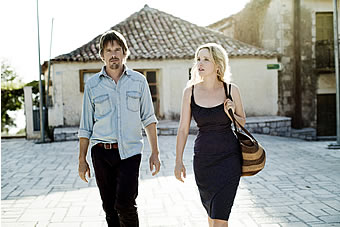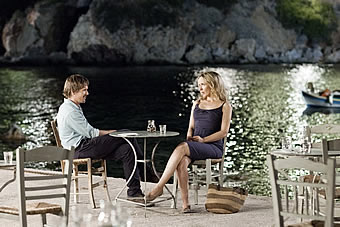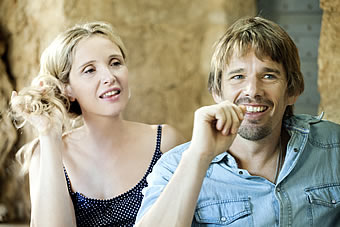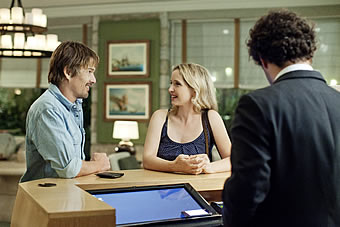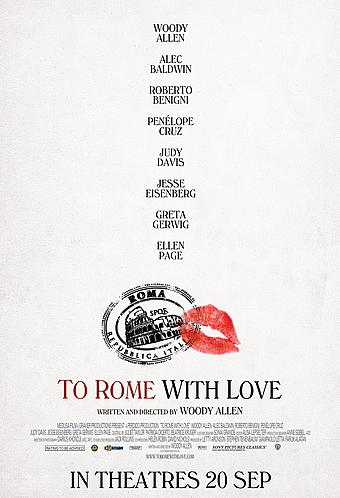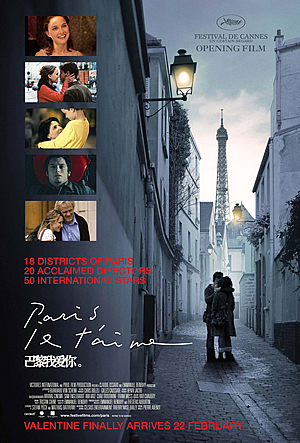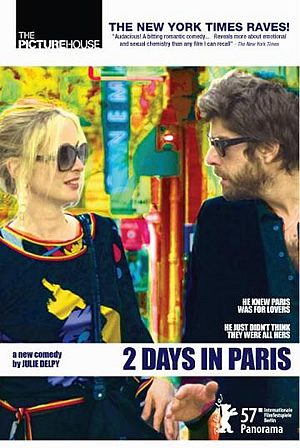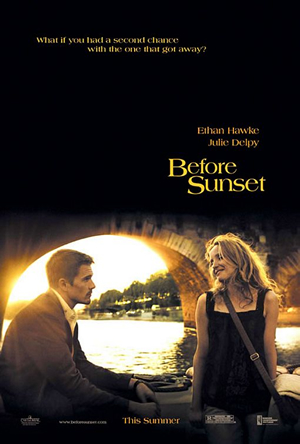BEFORE MIDNIGHT (2013)
Genre: Drama/Romance
Director: Richard Linklater
Cast: Ethan Hawke, Julie Delpy, Jennifer Prior, Charlotte Prior, Xenia Kalogeropoulou, Ariane Labed, Athina Rachel Tsangari
RunTime: 1 hr 49 mins
Rating: M18 (Sexual Scene and Coarse Language)
Released By: Shaw
Official Website: https://www.facebook.com/BeforeMidnightFilm
Opening Day: 25 July 2013
Synopsis: In Before Midnight, we meet Celine and Jesse 9 years on. Almost 2 decades have passed since that first meeting on a train bound for Vienna, and we now find them in their early 40's in Greece. Before the clock strikes midnight, we will again become part of their story.
Movie Review:
“I mean how long has it been since we were just wandering around bullshitting?”
Apparently, it’s been about nine years, but it feels longer than that in Before Midnight.
The third part of Richard Linklater’s (Me and Orson Welles, Bernie) trilogy revolving around the slow burn of a romance between a couple that fell in love from a chance encounter is the darkest one yet, and aptly titled. 1995’s Before Sunrise laid out the serendipitous meeting of young adults Jesse (Ethan Hawke) and Celine (Julie Delpy) on a train in Vienna. Their immediate attraction sparked an ineffable chemistry and intimate heart-to-heart conversations. Nothing much happened: there were no clichéd romantic overtures or cringe-worthy proposal scenes. They were simply talking, and the film was notable for exactly that. The natural interplay between Jesse and Celine were so riveting that the sequel in 2004, Before Sunset, felt like a welcome second chapter. It came to an abrupt end when Jesse had to rush off to catch a plane back home to his wife and kid… but did he?
It’s been another nine years since, and Before Midnight opens with Jesse at the airport with his son, a teasing reference to the previous film’s ending. The father-son interaction is awkward, reflective of a semi-distant relationship where both parties aren’t spending enough time with each other. We hear mentions of his ex-wife, an absent and rather carelessly demonised figure, and Jesse reluctantly sees his son off before joining Celine, who’s waiting in the car outside with their blonde twin daughters. They now live together in Paris but are holidaying in Greece, and as they drive off in the balmy weather, both drift into a familiar repartee, exchanging witty/snarky comments without missing a single beat.
It would feel like more of the same, but the content of the conversation is strongly telling of their age, heavier responsibilities and (still) struggling aspirations. Celine brings up a potential career opportunity in Paris while Jesse shares his concerns with missing out on his son’s growing up years, and hints at moving back to Chicago from Paris. Both ideas are at odds; we know this rift is merely the tip of the iceberg.
The dialogue between them is funny and entertaining, for sure, but now also practical: They no longer discuss dreams, philosophy or politics, and instead talk about their past, their families, their mortality, and ultimately whether their love can withstand life’s wear and tear. While the first two films felt like idealistic romance, reality bites in Before Midnight. When Jesse and Celine argue, both perspectives are painfully fleshed out, and audiences probably can identify with certain points. They’re so close that they know precisely what to say or do to deliver the deepest cuts. Perhaps worse than that, they do it unconsciously. It’s most clearly evinced over a lunch with a few other couples, where Celine repeatedly mentions their disagreements, ultimately prompting a young couple to question the longevity of love.
It is in the heavier parts of the film, when tensions are at their highest, where the depth of both lead characters shine through. Once a bright-eyed ingénue with a mind of her own, Celine in particular has matured and taken on a more assertive and caustic demeanour. She’s witty, occasionally to the point of being scathing, and never shy to call a spade a spade. Her new over-protectiveness is likely a function of her role as a mother. Delpy does an excellent job in conveying her character’s nuances and overall growth. Meanwhile, the age shows in Hawke’s Jesse, who’s trying his best but weighed down by his responsibility to his previous marriage.
Linklater retains the loose relaxed flow of the earlier two movies, allowing long takes where Hawke and Delpy have their famous talks and look like they’re improvising on-screen – both actors have said that they’re not; everything is scripted and rehearsed. This is largely in part due to the tight collaboration between the three, who’ve been involved in the series since day one. Credible and intelligent, the script manages to balance the joys of being in a committed relationship with the stress of inevitable conflicts. The end result is a bittersweet concoction that should strike a chord in many.
Movie Rating:




(Graceful and emotionally intense, this third chapter closes out the romantic story of a complex couple, featuring a fascinating blend of humour and pain while exploring love’s struggle against the realities of life)
Review by Wong Keng Hui
You might also like:

Movie Stills
